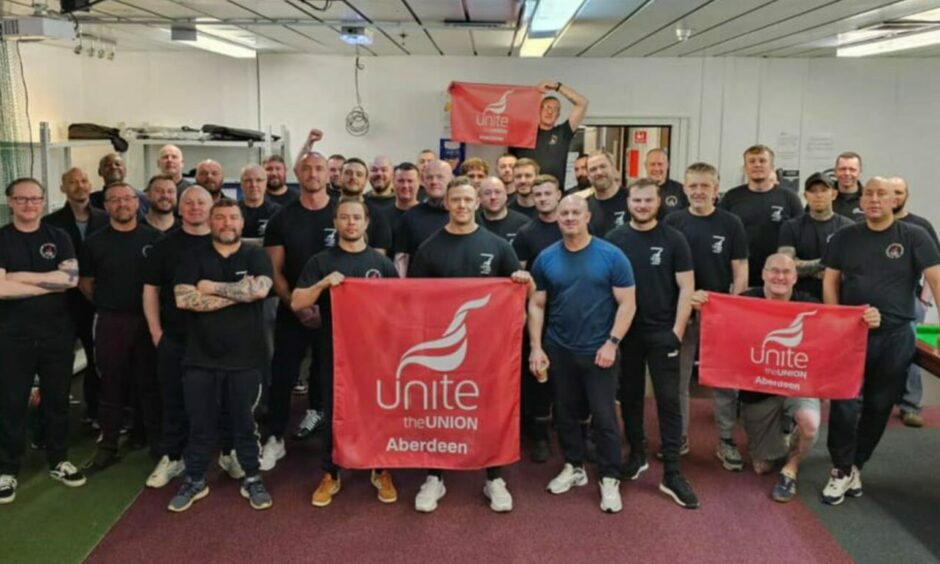Hundreds of North Sea contractors have downed tools for two days in the latest round of strikes offshore.
Unite the Union had expected about 1,650 contractors across five companies to take part in two 48-hour stoppages over the next fortnight.
But around 800 Bilfinger UK contractors are no longer participating.
The first stoppage, part of a series in a long-running dispute over pay and conditions, started at 6.30am today and ends at 1.29am on Saturday.
Unfettered corporate profiteering at the expense of our members will not go unchallenged.”
Sharon Graham, general-secretary, Unite the Union
A spokesman for Bilfinger UK, said talks with Unite had led to the union postponing all industrial action for its workers while they consider a new pay offer.
“Bilfinger remains focused on finding a positive solution,” he added.
A Unite spokesman confirmed around 650 Stork workers and 200 employed by Sparrows would continue with the 48-hour action starting today.
He added: “Negotiations remain ongoing with the various companies involved in these offshore disputes.”
Workers involved in the strikes include electrical, production and mechanical technicians, deck crew, scaffolders, crane operators, pipefitters, platers, and riggers.
About 1,400 workers took part in stoppages during April and May in the escalating dispute.
The latest strikes are expected to hit operators including Apache, BP, Harbour Energy, EnQuest, Ithaca Energy, Repsol Sinopec UK, Shell and Taqa.
Unite general-secretary Sharon Graham said members were “taking the fight to multi-billion oil and gas corporations”.
She added: “Unfettered corporate profiteering at the expense of our members will not go unchallenged. Unite is determined to deliver better jobs, pay and conditions in the offshore sector, and deliver we will.”
Sparrows declined to comment. Stork was also approached but did not respond immediately.
The second two-day stoppage in the latest round of strikes will run from June 8-10.
Workers treated as ‘political football’
Meanwhile, campaigners for a “just” transition have said “rhetoric” by North Sea oil and gas firms around jobs does not treat workers fairly.
Rosemary Harris, of pressure group Platform, said: “Oil companies are treating workers like a political football, talking about protecting jobs when it suits them and laying people off when it doesn’t.
“Oil and gas has long been bad for jobs, energy security and the climate. Workers do not need meaningless platitudes about jobs from industry and government – they need their demands for a just transition to be taken seriously.”
It follows a report co-authored by Platform which found “low morale” and a “culture of fear” among workers were seen as key barriers to achieving the UK’s energy transition.



Conversation